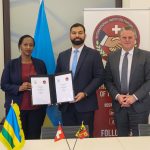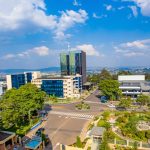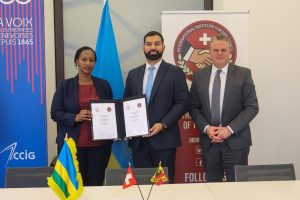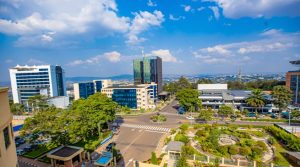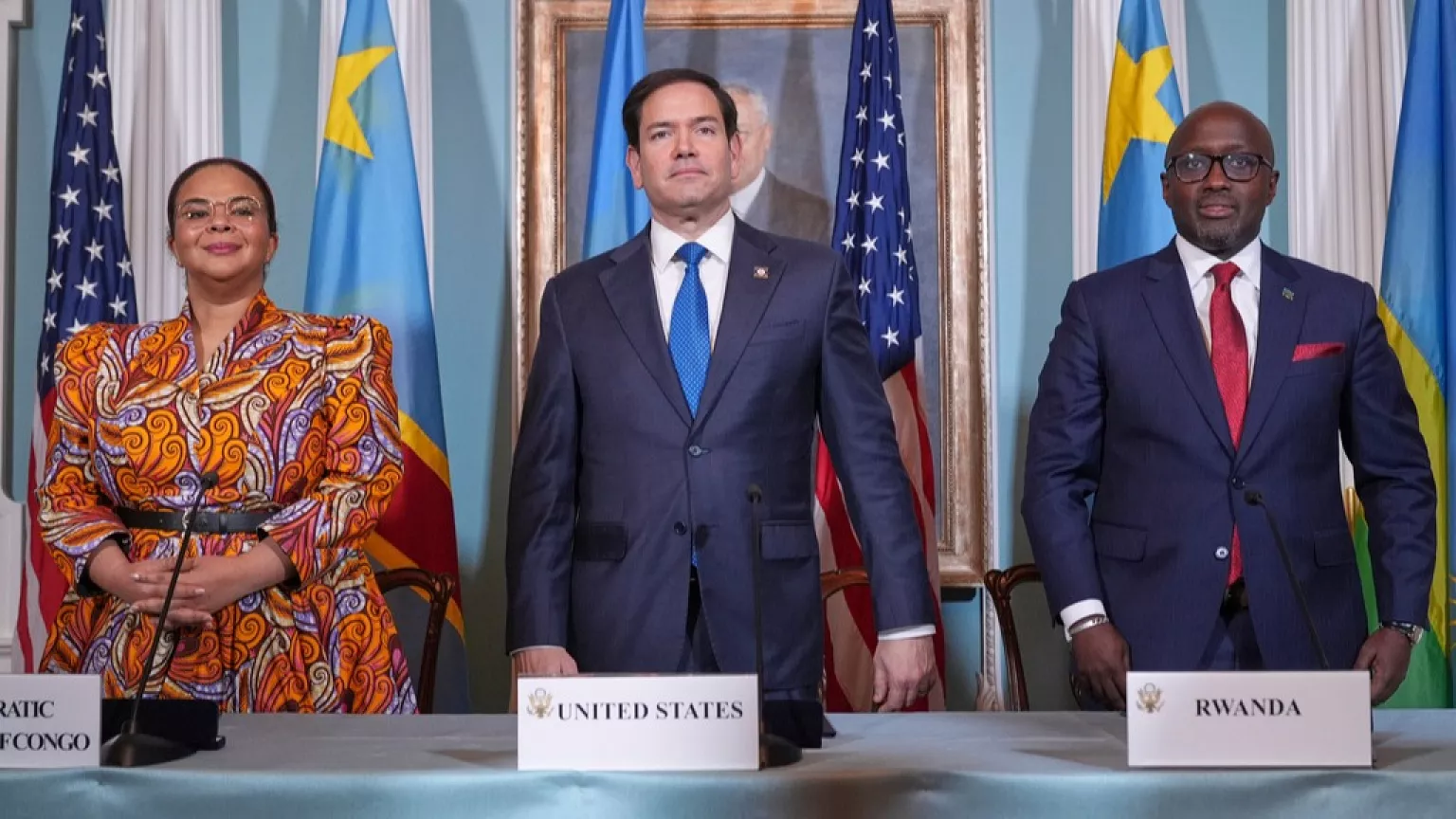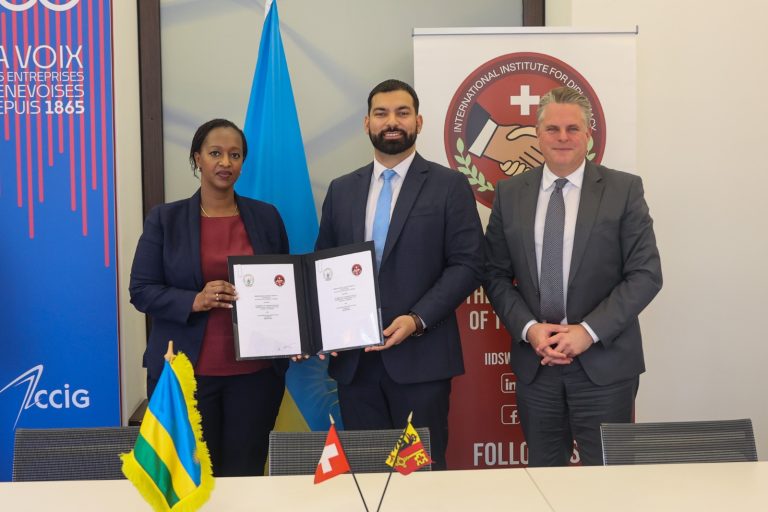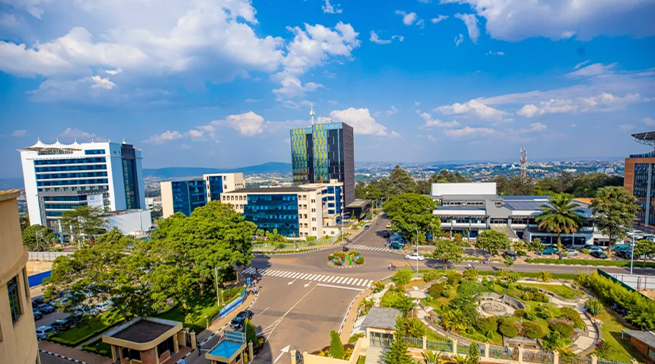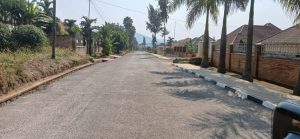The Government of the Democratic Republic of the Congo (DRC) and the Government of Republic of Rwanda (Rwanda) (together, “the Participants”)
- Welcoming the Declaration of Principles signed by Foreign Minister Thérèse Kayikwamba Wagner of the Democratic Republic of the Congo (DRC) and Foreign Minister Olivier Nduhungirehe of Rwanda in Washington, D.C. on April 25, 2025;
- Committed to supporting the implementation of the Peace Agreement dated June 27, 2025 between the DRC and Rwanda by preventing illicit trade from fueling violence or funding armed groups and building a future where cross-border cooperation enhances peace and prosperity for both countries;
- Recognizing the potential for synergy with continental and regional organizations, including the possibility of revitalizing Economic Community of the Great Lakes Countries (CEPGL);
- Intending to chart a future of mutually beneficial partnerships, greater connectivity with international and regional economic development initiatives, and investment opportunities across sectors, including in mining, infrastructure, energy, industrial development, agribusiness, public health, and national park management.
Hereby announce their intent to establish a Regional Economic Integration Framework (REIF). The Participants further intend to finalize the REIF through a separate agreement which will outline the coordination mechanisms to conduct planning and implementation of REIF lines of effort and initiatives. The Participants reaffirm that these initiatives are to be carried out in full compliance with the sovereignty, laws, and regulations of each country. The Participants intend for the REIF to include the Areas of Focus described below, with the overall intention of ensuring the REIF serves as a living platform that allows the Participants to add new mutually agreeable objectives and initiatives.
EXPECTATIONS AND OBJECTIVES OF THE PARTICIPANTS
The Participants affirm their common commitment to promoting peace, regional stability, and sustainable economic development. Rooted in the principles of sovereignty, mutual respect, and regional cooperation, this REIF outlines a shared vision for addressing long-standing challenges and promoting shared prosperity in the Great Lakes region.
As a priority, the Participants seek to combat and progressively eliminate illicit activities associated with the extraction, trade, movement, and processing of mineral resources, which undermine peace, security, and good governance in the region.
Participants recognize that energy and infrastructure development are the preconditions for industrialization, especially in the mining sector, and for uplifting the quality of life of communities.
The Participants aim to promote a professional, rules-based, and productive regional economy, particularly with regard to mineral value chains, that benefits local communities above all.
The Participants affirm that each country has full, sovereign control over the exploitation, processing, and export of its natural resources. Each country deserves to receive the appropriate economic returns from those resources through promoting industrialization of the mining sector consistent with the policies and legal frameworks of each country. Each country also stresses that the communities need to benefit from the revenues and other advantages derived from their extraction, processing, and commercialization.
In pursuit of greater transparency and value retention, the Participants intend to work jointly with relevant stakeholders to progressively eliminate barriers – whether reputational, technical, or commercial – that obstruct the direct and lawful export of minerals sourced in the region, notably tin, tantalum, tungsten, niobium, gold, and other minerals. By doing so, the Participants intend to create a conducive environment to attract investment in both countries and in the region.
The Participants recognize both the importance of developing mineral processing and transformation capacity within both the DRC and Rwanda, and the relevance of existing infrastructure and industrial platforms in the region. Building on these complementarities, the Participants seek to promote a balanced and forward-looking framework for economic cooperation aimed at supporting formal mining activities, strengthening regional value chains, and ensuring the development and responsible management of new infrastructure, particularly in the logistics and energy sectors.
Lastly, the Participants express their intention to identify and promote common areas of cooperation in the Great Lakes region, including cross-border infrastructure, shared industrial zones, cross-border tourism, and transboundary markets, with a view to fostering deeper regional integration and sustainable growth as an anchor for lasting peace.
A) ENERGY
The Participants intend to cooperate to ensure increased electricity generation and access for both industry and households and identify prospects for a regional power pool. In coordination with neighboring countries in the Great Lakes and informed by the AU’s Continental Power Systems Masterplan, the Participants intend to prioritize the financial close of the Ruzizi III hydropower project, as well as the coordinated and sustainable exploitation of methane gas from Lake Kivu for electricity generation and transmission. Both Participants may utilize the multilateral governance arrangements of the CEPGL as appropriate.
B) INFRASTRUCTURE
The Participants intend to cooperate to develop mutually beneficial infrastructure, especially transportation, logistics, and information and communications technology (ICT) infrastructure. The Participants intend to develop passenger and cargo transportation infrastructure and warehouse, port, and market infrastructure and cooperate to attract and leverage private sector investment in infrastructure that enables economic growth in the Great Lakes region. The Participants resolve to ensure these efforts connect with the United States-supported Lobito Corridor, and advance both countries towards greater regional and international transportation, logistics, and ICT connectivity.
C) MINERAL SUPPLY CHAINS
Both Participants intend to work in their respective countries and in collaboration with each other to provide clean, regular mineral supply to international markets. The Participants commit to cooperate to ensure the minerals trade no longer provides funding to armed groups and to create a world-class industrial mining sector in the region from mine to end-users, delivering significantly more value from the mineral sector for both countries and improving the reputation of the sector. The Participants also commit to formalizing artisanal and small-scale mining (ASM), expanding opportunities for future alternative livelihoods, and undertaking joint initiatives to improve transparency and combat corruption and illicit trade, including by enhancing traceability and professional standards. The Participants intend to ensure better cross-border interoperability, including through enhancing border management, and promote value sharing, including through industrial development initiatives. The Participants have a shared goal to create the conditions for global market-leading mining and processing firms to invest in the region.
D) NATIONAL PARK MANAGEMENT AND TOURISM
The Participants intend to cooperate to strengthen cross-border conservation and park management activities and ensure science-based management of biodiversity and ecosystems. The Participants commit to developing an expanded cross-border security strategy across the transboundary landscape to improve coordination and cooperation related to threats within the respective parks through coordinated enforcement mechanisms and legal harmonization. The Participants intend to create an enabling environment for the development of a sustainable cross-border tourism industry, and to support each other’s tourism operators. The Participants further intend to empower and integrate communities in conservation through equitable benefit-sharing and sustainable livelihoods, such as introducing a harmonized tourism revenue sharing scheme and a standardized community livelihood development policy.
E) PUBLIC HEALTH
The Participants intend to cooperate to strengthen cross-border cooperation to prevent and control the spread of diseases and promote enhanced public health. The Participants endeavor
to ensure joint efforts in the cross-border area effectively preventing outbreaks, pandemics, and epidemics, and exploring options for information sharing to promote scientific research and health-related commercial opportunities.
F) OTHER OPPORTUNITIES TO EXPAND COOPERATION
The Participants intend to cooperate to continue to adapt REIF efforts and identify new opportunities for joint initiatives as they arise. The Participants commit to explore options to accelerate mutual trade liberalization and integration. The Participants seek to ensure the REIF remains a living platform that can continue to support deepening economic interdependence and shared prosperity. The Participants continue to identify new opportunities for cooperation as they arise, including in water, sanitation, agribusiness (including livestock), education, and sports and entertainment among others.

